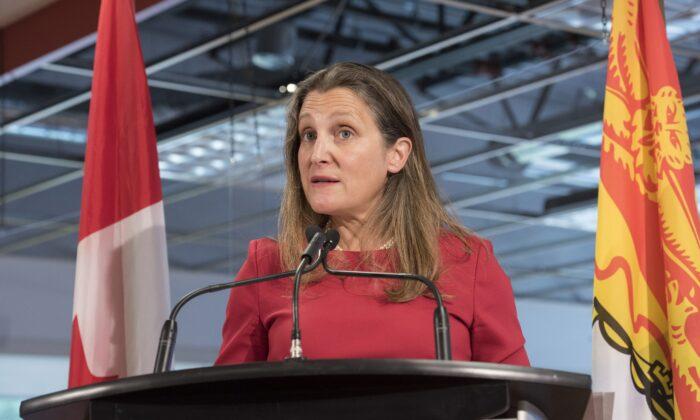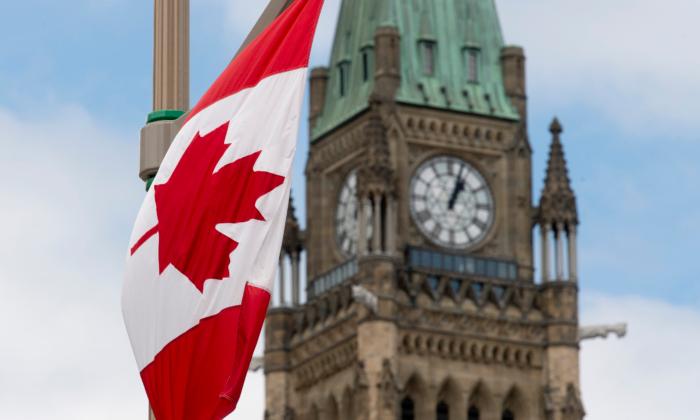The Canadian government will postpone and possibly scrap its digital services tax on Big Tech after signing a global pact with 135 other countries to overhaul the way large multinational companies are taxed.
The deal requires the largest and most profitable multinational enterprises—those with global sales of about $28.7 billion a year and over 10 percent profitability—to pay a “fair share of tax” in countries where they operate, regardless of whether they have a physical presence there.
But the condition is that participating countries—including Canada—are required to “remove all Digital Services Taxes and other relevant similar measures with respect to all companies, and to commit not to introduce such measures in the future,” according to a statement by OECD on Oct. 8.
Finance Minister Chrystia Freeland said that the federal government would postpone the implementation of the DST, but would still proceed to finalize the legislation of the tax, in keeping with Budget 2021.
She stressed should the Canadian tax be implemented eventually, Big Tech would have to retroactively pay their due.
“In that event, the DST would be payable as of 2024 in respect of revenues earned as of January 1, 2022,” she said.






Friends Read Free